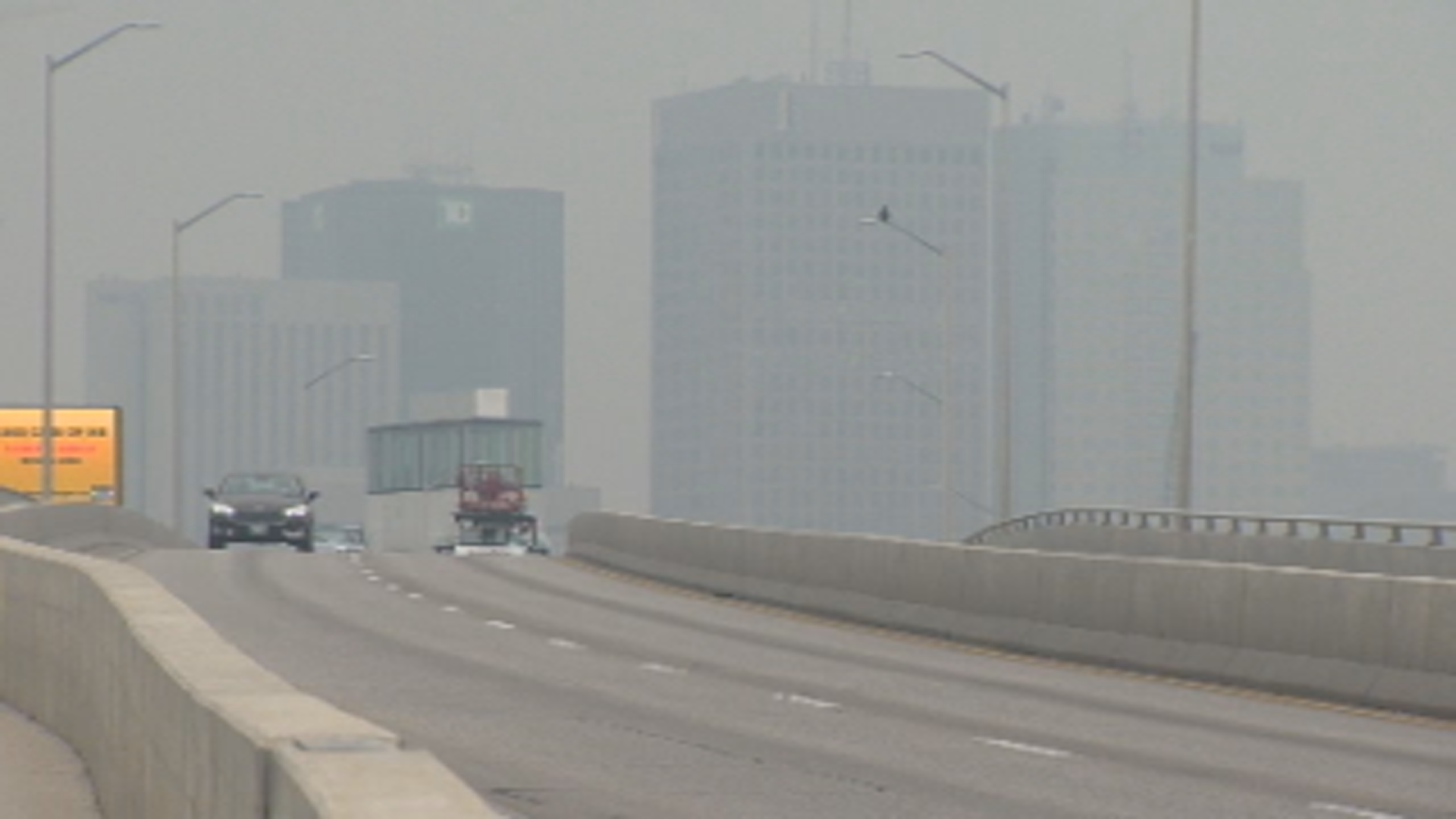If you’ve noticed your seasonal allergies getting worse in recent years, you’re not alone.

Common symptoms like sneezing, runny nose and itchy, watery eyes are lasting longer and are more severe, and experts say climate change is to blame.
“There are concerns that climate change will increase both the incidence and the prevalence of allergic respiratory conditions and asthma,” said Jennifer Protudjer, University of Manitoba Research Chair in Allergy, Asthma and the Environment. “It may also impact the exacerbations of those conditions, which will impact our health-care system.”
A common allergen is pollen – tiny particles from flowering plants that travel through the air. Allergy season typically lasts from spring to early summer, but as temperatures rise, pollen problems begin earlier and last longer.
A 2021 study found that human-caused climate change was already responsible for longer and more intense pollen seasons in North America. In some cases, the season was extended by as many as eight days, and began 20 days earlier than baseline.
In Manitoba, tree pollen is a major seasonal allergen. Pollen from oak and birch trees are known to cause respiratory reactions, but Protudjer says sufferers can be affected by certain foods in a cross-reaction.
“It’s something that occurs when the body’s immune system recognizes a molecule that is closely related to a different species,” she said, adding pipped and pitted fruits, carrots and celery can trigger reactions in people allergic to oak and birch pollen.

And it’s not just local pollens that could be an issue in the future.
“Our area is warming, so more plants will migrate where the climate is beneficial to them,” said Neil Johnston, president and CEO of the Manitoba Lung Association.
“We may be exposed to different pollens that we may not have been exposed to before.”
In his work as a respiratory therapist, Johnston sees the long-term effects of Manitoba allergens on the lungs. In addition to pollen, wildfire smoke is a common allergen in the province, and it can trigger asthma attacks and allergy symptoms.
The smoke and pollen particles that irritate the lungs and cause reactions are called fine particulate matter, or PM 2.5 (2.5 is the measurement of the particles in micrometres). Johnston says these “teeny-tiny itsy-bitsies” are microscopic and can go deep into the lungs.
“They can actually go through the lung tissues and go into the blood system and cause all sorts of problems in the lungs and throughout the body,” he said.
As pollen season extends with rising temperatures, so too does wildfire season and the smoke that comes with it. And the fires don’t need to be local for air quality to suffer – smoke from wildfires can drift thousands of kilometres.
Johnston says smoke from fires that burn developed areas is of particular concern.
“If you’re burning cars, houses, businesses, there’s going to all sorts of other noxious chemicals in the smoke, and the downstream plume could be a cocktail of nastiness,” he said.
Those living in northern communities where forest fires are more common are most at risk. Although the occasional exposure to wildfire smoke is normal, even those in good health should avoid it whenever possible. Prolonged exposure can cause asthma in an otherwise healthy person.

“It’s really something that everybody needs to be concerned about,” Johnston said.
Wildfire smoke has forced Karen Sandney to leave home for clearer skies many times. Sandney has lived with asthma and severe respiratory allergies her whole life. She lived in Gillam, Man., for many years, and has been evacuated and hospitalized twice due to smoke in the area.
“We’d start making plans as soon as it starts getting smokey to figure out where we will go,” she said. “There have been times when it was so bad my husband had to take me south just to get away from the smoke.”
Although she’s moved to southwestern Manitoba and has not had to evacuate since, she’s constantly on alert, as even the slightest change can trigger an attack.
“It’s not something I’d wish on anybody,” she said. “It can come on so suddenly … I am an air quality monitor. I don’t need to carry one. I can tell.”
As the climate warms and allergens become more pervasive, more people could have life-altering conditions like Sandney’s.
Andrew Halayko, research chair in lung pathobiology and its treatment at the University of Manitoba, says asthma is already the number one reason children visit emergency departments in Canada – and climate change will strain services even further.
“The acute effect is you’re going to see people who are vulnerable to the effects of poor air quality or wildfire smoke showing up more frequently … or requiring more medical attention,” he said.

On top of the immediate symptoms, repeated respiratory reactions can impair the body’s ability to fight off other infections.
“What we call immune defense regulators, that allow us to respond to pathogens – so viruses, bacteria – are diminished,” said Halayko. “So our ability to resist infection in the lungs is actually diminished as well.”
Most experts agree global warming is already having an effect on our local climate and impacting our health. To what degree that continues will depend on the impact of human-caused climate change.








Comments